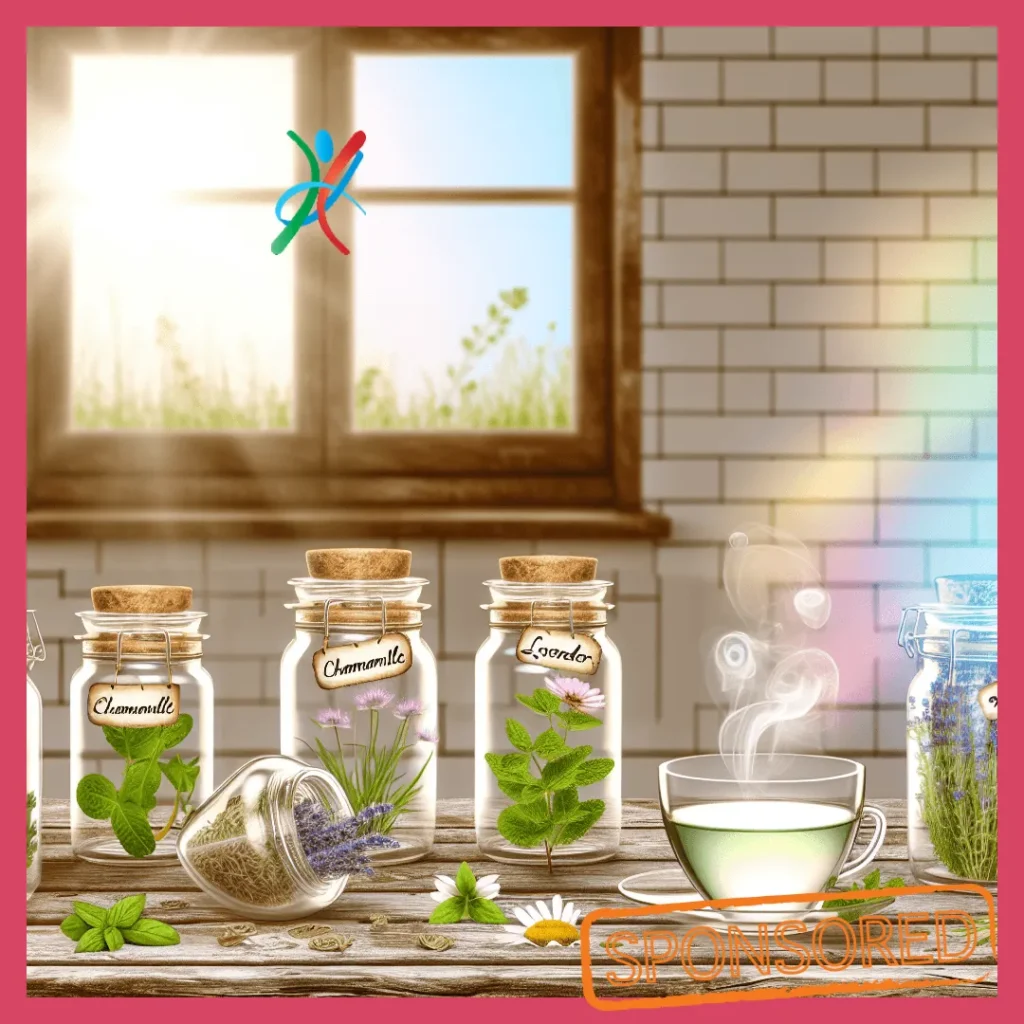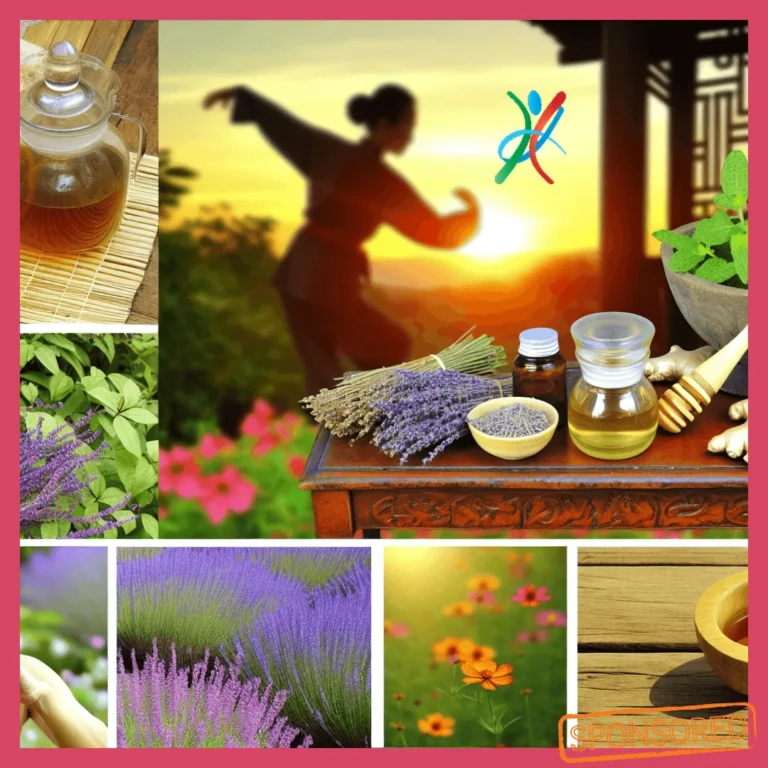Natural Herbal Remedies
In an age where synthetic medications and quick fixes dominate the healthcare landscape, a growing number of people are turning their attention back to the roots—literally.
Natural herbal remedies, with their centuries-old history of holistic healing, are experiencing a renaissance in modern wellness culture.
Imagine finding relief not in a pill bottle but through the time-tested wisdom of nature’s bounty: plants, roots, flowers, and herbs that our ancestors relied upon.
From soothing chamomile tea to potent garlic cloves that fend off colds, these natural solutions offer more than just symptomatic relief—they provide a deeper connection to our well-being.
In this article, we’ll explore the fascinating world of natural herbal remedies.
We’ll delve into the science behind their efficacy and how you can incorporate them into your daily life for better health and vitality.
Ready to rediscover ancient secrets? Let’s embark on this enlightening journey together.
In today’s fast-paced world, many individuals are turning to natural herbal remedies as a safe and effective alternative to traditional medications.
Natural herbal remedies have been used for centuries in various cultures around the world to treat a wide range of health conditions.
From soothing inflammation to boosting the immune system, these natural remedies offer a holistic approach to healing that focuses on restoring balance to the body.
In this article, we will explore the benefits of natural herbal remedies, as well as the science behind their effectiveness.
We will also discuss how these remedies can be incorporated into your daily routine to promote overall health and well-being.
Whether you are looking to alleviate symptoms of a specific illness or simply improve your overall vitality, natural herbal remedies offer a gentle and natural solution that can complement conventional medical treatments.
Join us as we delve into the world of natural herbal remedies and discover the transformative power of nature’s healing gifts.
Traditional herbs for modern ailments
In recent years, there has been a resurgence of interest in utilizing traditional herbs to address modern health concerns.
Many individuals are turning to age-old herbal remedies to complement or even replace conventional treatments for a range of ailments.
The efficacy of these herbs is supported by a growing body of scientific research that validates the therapeutic potential of these natural substances.
By incorporating traditional herbs into modern healthcare practices, individuals can benefit from the holistic approach that these remedies offer, promoting overall well-being and potentially reducing reliance on synthetic medications with their accompanying side effects.
Evidence-based botanical remedies for health
The utilization of botanical remedies in health care is supported by a wealth of empirical evidence derived from numerous clinical trials and research studies.
These evidence-based botanical remedies encompass a diverse array of plants that have demonstrated medicinal properties, ranging from anti-inflammatory and antimicrobial effects to cognitive and digestive health benefits.
Through the systematic analysis of these botanical substances, researchers have been able to identify specific bioactive compounds responsible for their therapeutic actions, providing a solid foundation for the integration of botanical medicine into mainstream healthcare practices.
By leveraging the collective wisdom of traditional healing practices alongside modern scientific methodologies, evidence-based botanical remedies offer a promising avenue for enhancing health outcomes and fostering a more comprehensive approach to wellness.
Herbal tonics for stress relief
In today’s fast-paced society, where stress has become an inevitable part of daily life, the use of herbal tonics for stress relief has garnered significant attention in holistic wellness practices.
Certain botanical remedies, such as adaptogenic herbs like ashwagandha and holy basil, have been traditionally used to combat the detrimental effects of stress on the body and mind.
These herbal tonics are believed to help regulate the body’s stress response system, promoting a sense of calmness and balance.
With their natural properties that support the body’s resilience to stressors, herbal tonics offer a gentle yet effective way to manage stress and promote overall well-being in a holistic manner.
Exploring organic solutions for wellness
The pursuit of wellness through organic solutions entails a comprehensive approach that emphasizes the intrinsic connection between nature and the human body.
By turning to natural remedies derived from organic sources, individuals can embrace a lifestyle that nurtures holistic well-being while minimizing exposure to synthetic substances.
Organic solutions for wellness often encompass a diverse range of practices, including incorporating organic foods, herbal supplements, and mindfulness techniques into daily routines.
This integrated approach aims to support the body’s innate healing mechanisms and enhance overall vitality in a sustainable and harmonious manner.
Such practices align with the fundamental principle of respecting the body’s natural processes and fostering a balanced state of health through organic means.
Holistic approach to herbal healing
In the realm of holistic healthcare, the holistic approach to herbal healing plays a pivotal role in restoring and maintaining well-being through natural means.
By recognizing the interconnectedness of physical, emotional, and spiritual aspects of health, herbal healing encompasses the utilization of plant-based remedies to address underlying imbalances and promote optimal functioning of the body.
Herbal healing techniques often involve the skilled application of botanical preparations, tailored to individual needs and rooted in traditional knowledge and contemporary research.
Through a holistic lens, herbal healing serves as a complementary tool in supporting the body’s inherent capacity for self-healing and fostering a state of equilibrium conducive to overall health and vitality.
In conclusion, the realm of natural herbal remedies presents a rich tapestry of traditional wisdom and modern scientific validation.
By exploring the vast array of herbs and plants endowed with medicinal properties, individuals can unlock a treasure trove of remedies that have been utilized for centuries.
While the efficacy of herbal remedies may vary, it is essential to approach their use with caution and under the guidance of trained professionals.
With a commitment to understanding and harnessing the power of nature’s gifts, one can embark on a journey towards holistic well-being and vitality.
Remember, when it comes to natural herbal remedies, knowledge, respect, and mindfulness are key.
FAQ
What are some common natural herbal remedies used to treat common ailments such as headaches, colds, and digestive issues?
Some common natural herbal remedies for headaches include peppermint oil and feverfew.
For colds, echinacea, elderberry, and ginger are commonly used.
Ginger, peppermint tea, and chamomile can help with digestive issues like bloating and indigestion.
These herbal remedies have been used for centuries and are believed to help alleviate symptoms associated with these common ailments.
It’s important to consult with a healthcare provider before using any herbal remedies, especially if you have pre-existing medical conditions or are taking medications.
How do natural herbal remedies differ from conventional medications in terms of effectiveness and potential side effects?
Natural herbal remedies often have fewer side effects compared to conventional medications, as they are derived from plant-based sources.
However, their effectiveness may vary and can be less potent than synthetic drugs.
While herbal remedies may provide gradual and more subtle relief, conventional medications tend to offer quicker and stronger results.
It is essential to consult with a healthcare provider before using herbal remedies, as they can still interact with other medications and may not be suitable for everyone.
Overall, the key difference lies in the origin and potency of the ingredients used in herbal remedies versus conventional medications.
Are there any potential risks or interactions to be aware of when using natural herbal remedies alongside prescription medications?
Yes, there can be potential risks or interactions when using natural herbal remedies alongside prescription medications.
Some herbs can interact with medications, either decreasing or increasing their effectiveness.
It’s important to consult with a healthcare provider before combining natural remedies with prescription drugs to avoid any adverse effects or complications.
It’s also crucial to disclose all medications and supplements being taken to ensure safe and effective treatment.
How can one determine the quality and authenticity of natural herbal remedies, especially when purchasing them from stores or online?
To determine the quality and authenticity of natural herbal remedies, it is crucial to look for certifications from reputable organizations, such as USDA organic, Non-GMO Project Verified, or Good Manufacturing Practice (GMP) certifications.
Additionally, carefully read labels for ingredients, sourcing information, and possible side effects.
Research the reputation of the brand or seller, check for customer reviews, and ensure transparency in manufacturing processes.
It’s also advisable to consult with a healthcare provider or herbalist to confirm the safety and effectiveness of the product for individual needs.
What are some traditional herbal remedies that have been used for centuries in different cultures around the world, and are they still relevant and effective in modern times?
Traditional herbal remedies like ginger, turmeric, ginseng, and echinacea have been used for centuries in various cultures for their medicinal properties.
These remedies are still relevant and effective in modern times, with many studies supporting their health benefits.
For example, ginger is used to alleviate nausea and inflammation, while turmeric is known for its anti-inflammatory and antioxidant properties.
Ginseng is believed to boost energy and immunity, and echinacea is used to support the immune system.
These remedies continue to be popular due to their natural origins and perceived effectiveness in promoting well-being.







